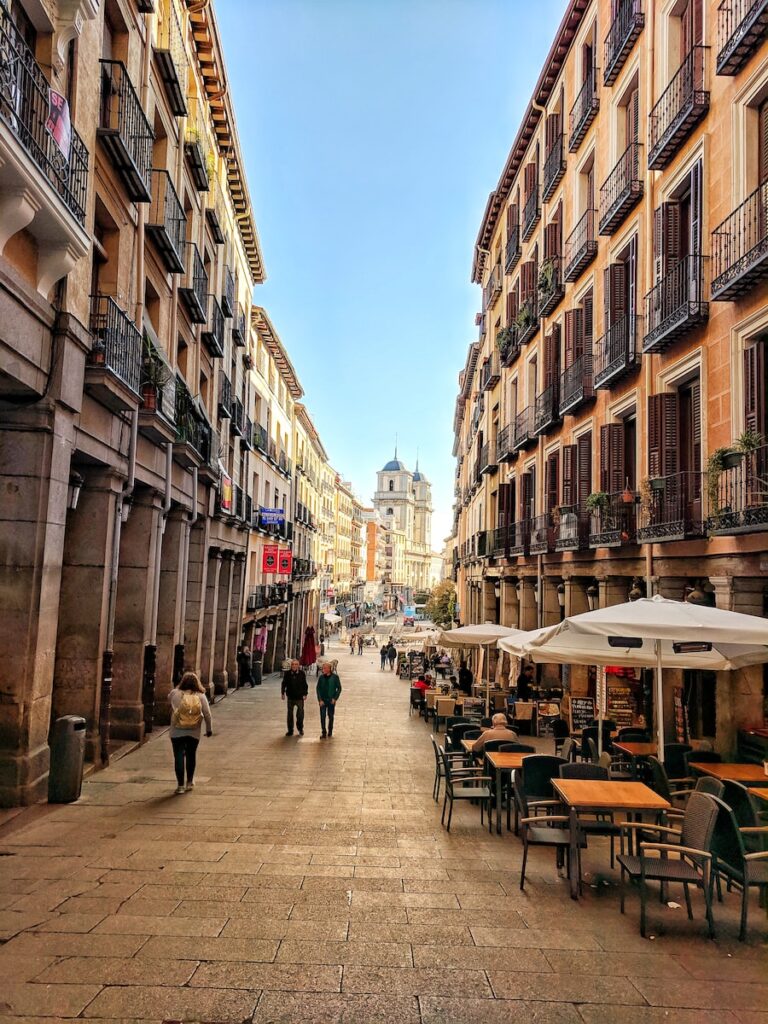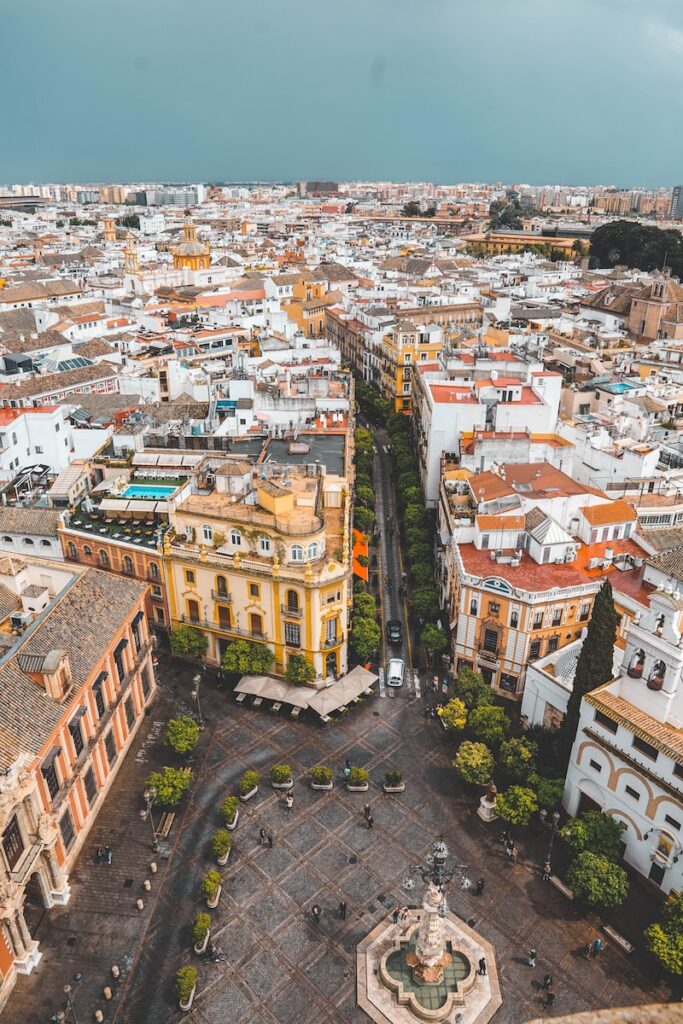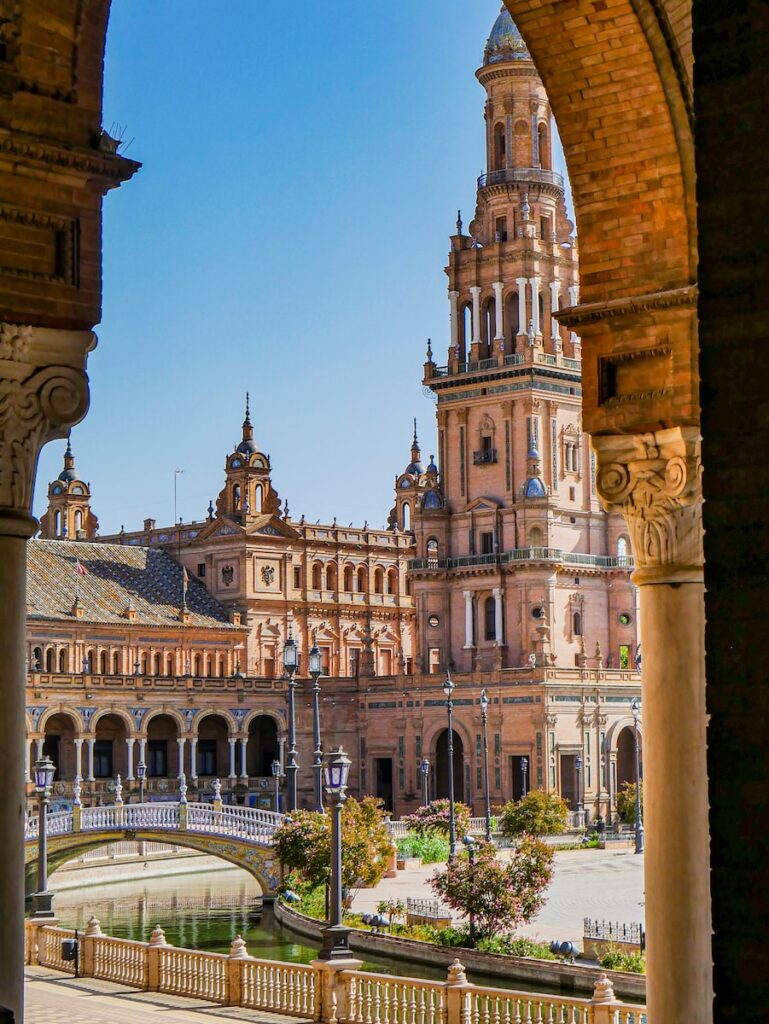Spain's Golden Visa: Everything You Need to Know
Here at Homelike, we’re experts on relocation—and the Spain golden visa is one of the best relocation options that Europe has to offer. So, coming up, we’ve put that knowledge to good use… and we’ve brought you all there is to know about the program. Lucky you!
Across the entirety of Europe, Spain is one of the most popular choices for hunting down a brand-new life. Warm, friendly, surprisingly affordable, and packed with endless variety, it’s a great place to live—and more than 6 million non-natives are residents in the nation.
But for most people, a Spanish relocation involves some bureaucracy—and as you most likely know, that probably means obtaining a visa.
There are many visa options for moving to Spain, depending on who you are, where you’re from, and what your plans are. But one of the most appealing is the so-called ‘golden visa,’ which allows big-money investors to move to the nation after contributing to the Spanish economy (in various different ways).
So in this guide, we’ve brought you everything you need to know about the Spain golden visa, which can entitle you to pursue an exciting new life in the sunny climes of Spain.
Want to know more about the golden visa program in Spain? Read on boys and girls, cos we’ve covered it all!
1. What is the Spain golden visa?
In short, the Spain golden visa is a unique and convenient relocation program that allows you to move to Spain on a long-term basis.
To make use of it, you need to make some form of hefty investment in the Spanish economy.
There are lots of investment options, but the cheapest starts at €500,000—so this is really only suitable for people with some big ol’ chunks of money to spare. Because of that, it’s a popular option for people who want to retire in Spain.
2. Which investment options are available for a Spain golden visa?
There are lots of ways you can qualify for Spain’s golden visa… but they all require a pretty big investment, whichever one you choose.
Your five options are:
- Invest €500,000 (or more) in Spanish real estate. This can be splurged on one single property, or invested over a number of different properties.
- Buy €1 million (or more) shares in a Spanish company or fund.
- Deposit €1 million (or more) into a Spanish bank account. In terms of avoiding big fat heavy loads of bureaucracy, this is of course the easiest option; perfect if you’re looking for a no-fuss relocation.
- Pay off €2 million (or more) of Spanish government debt, on behalf of the Spanish government.
Start a ‘general interest’ business in Spain. This business must employ (at least some) Spanish people, and contribute to Spanish interests in some way. What does and doesn’t constitute a ‘general interest’ business is pretty nebulous, so this option isn’t as popular as some of the others. Your business plan has a better chance of being accepted if it’ll directly feed into the Spanish economy, and if it promotes scientific and technological advancements in the nation.

3. What are the requirements and eligibility criteria for a golden visa?
First of all, you of course must have access to at least €500,000 in cash. If you don’t have at least that much spare cash, you won’t be able to make a big enough investment.
But there are some other requirements too: you need to have a clean criminal record, you need to be at least 18 years of age (which, unless you’re outrageously lucky, you probably are), and you can’t be from within the EU.
Importantly, you can only apply for the golden visa if you’re from a nation outside of the EU/EEA region. That’s because people from within that area are freely able to move to Spain with very little bureaucracy. Good old EU freedom of movement.
To make sure you fulfill all the requirements, and that you’ve applied properly, it’s a good idea to enlist the help of a legal professional. If you hire a professional with experience in all this golden visa stuff, you won’t waste time or money, and your application will have a much better chance of being accepted.
It’s also important to note that bureaucratic requirements can change on a frequent basis… so what applies right now might not necessarily apply tomorrow. But a professional will always know of the latest information—and they can therefore give you the most relevant, timely and appropriate guidance.
But for now, here’s exactly what you’ll need to provide for your big exciting application…
4. What documents do I need in order to apply for the Spain golden visa?
When you apply for your Spain golden visa, you need to prepare and offer the following:
- Your passport (which is no surprise), with at least one year of validity
- Your fully-completed (and accurately-completed!) Spanish golden visa application
- Two passport-style photographs, preferably taken within the last 6 months
- Proof of valid private medical insurance. This insurance should be obtained via a Spanish provider. That said, if you’ll be paying taxes in Spain, you’re entitled to access the nation’s public healthcare system—and therefore won’t need private insurance
- A medical certificate, fully declaring any medical problems you have
- A clean criminal record, proven via an official criminal record check
- You may also need to provide proof that you have enough money to provide for yourself (and your family if you have one) while you’re in Spain. That said, there’s no official figure for exactly how much you need to prove you have
All of these documents should be translated into Spanish, by a professional translator.
It’s also important that you’ve never before had an application rejected for a Schengen visa… and that you’re not on Spain’s list of “undesirable people” (whatever that even means).
And on top of all that, you (of course!) also need proof of your successful investment, whatever type of investment that is.

5. How long is a golden visa valid?
When you first get your golden visa, it will be valid for one year, if you obtained it outside of Spain at an embassy or consulate. If you instead obtained your visa inside of Spain, it will be valid for two years.
During this period (no matter whether it’s one years or two years), you need to exchange your initial visa for your residence permit. You need to obtain this permit in Spain, and it’s valid for two years.
You can then keep renewing this residence permit in increments of two years.
6. What is the minimum stay per year to keep your golden visa?
Unlike most visas, the Spain golden visa doesn’t ask you to spend much time in Spain—all you need to do is visit the nation at least once per year, and your visa will remain valid.
That said, if you want your golden visa to ultimately lead to Spanish citizenship, you’re required to spend at least 183 days per year in the nation. Which brings us to…
7. Can you obtain Spanish citizenship through a golden visa?
Yes, you can eventually obtain Spanish citizenship by getting a golden visa.
That said, you’ll have to wait ten years to get this citizenship, and there are of course some requirements:
- You must spend at least 183 days per year in Spain, for a consecutive period of 10 years
- You need to speak Spanish to a ‘basic’ level
- You need to have a vague understanding of Spanish history and culture
- You need to have no Spanish debt, and have no criminal convictions in Spain
But, wait… there are some (exciting) exceptions to the above. If you’re from a former Spanish colony, you only need to wait two years to get this citizenship, instead of waiting for ten years. Those former Spanish colony countries (in alphabetical order!) are…
Argentina, Bolivia, Chile, Colombia, Costa Rica, Cuba, Dominican Republic, Ecuador, El Salvador, Guatemala, Honduras, Mexico, Panama, Paraguay, Peru, Philippines, and Venezuela.
If you’re from one of these countries, and have traveled to Spain 8 times (or more) within the two-year period after obtaining your visa, you’re entitled to citizenship.

8. What are the benefits of the Spain golden visa?
The first benefit (obviously), is that you get to live in Spain… which you probably worked out for yourself already.
But as a nice bonus, you won’t necessarily be going alone—when you move to Spain as part of the golden visa program, you can also take your family with you (which, assuming you like them, is another pretty big benefit). More on that coming up in the next part of this guide!
You can also enjoy exploring various areas of the EU. With your Spain golden visa, you (and your family members, if you have them) are allowed to travel freely within the EU area with no visas and no bureaucracy.
And last of all, the residence status allows you to access Spain’s healthcare and education systems, both of which are of pretty high quality.
9. Can you include family members in your application for Spain’s golden visa?
Yes, you can. But there are limits—you can’t take your baby niece or your great aunt or a distant cousin. Here’s who you can take:
- Your partner (you must be married to this partner)
- Any dependent children you have (though they must be unmarried, and it’s a lot easier if they’re under 18)
- Any dependent elderly parents (you must prove this parents are dependent on you)
All in all, the golden visa program in Spain is pretty generous, and it’s a great way to relocate yourself and your loved ones. That said, your family members will also need to apply for a Spanish visa as so-called ‘dependents’. But don’t worry—if they can prove that they are indeed dependents, there’s very little chance that their applications will be rejected.
10. What taxes are applicable to golden visa holders?
The best initial option for most people is some type of non-resident account, which (of course) entitles you to access banking services before you’re an official Spanish resident.
Once you then become a resident, you can either open an additional standard resident account, or change your non-resident account into a residential account.
Opening a bank account in Spain is quick and easy, and probably very similar to opening a bank account in your home nation, wherever that is. You’ll need your ID (preferably a passport), along with proof of address (but if you’re not living in Spain, an official certificate of non-residence will be a sufficient replacement).
It’s also possible to remotely open a bank account online… even if you’re not in Spain when you apply. Convenient!
No matter when and how you’re opening your bank account, some of the most popular and reliable banks in Spain include Santander, BBVA, and completely-online N26 (which is rapidly becoming a very popular option). Between the three of them, at least one of those banks will offer whatever type of service you’re looking for.
11. How can you open a bank account in Spain?
This is where things get a little complicated—tax requirements are dependent upon how much time you’ll be spending in Spain, and what exactly you’ll be doing when you’re there.
If you are not a full-time resident (that means you spend less than 183 days per year in the nation), you won’t need to pay any income tax. But if you spend 183 days (or more) in the nation, you will need to pay income tax.
That said, you might not plan on getting a job… and then you won’t be getting any income to be taxed on.
No matter how much or how little time you spend in Spain, you still need to pay taxes on your properties in Spain (if you have them). So you’ll need to pay municipal taxes on your property (which pay for things such as street repairs and local conveniences and all that stuff)—and if you rent your property out, you’ll need to pay rental taxes.
Again, we keep saying this… but because the exact circumstances will be different for every single person who applies for the Spain golden visa, it’s a good idea to employ the help of a professional who can talk you through the specific tax implications of your big move.

12. How can you get an NIE in Spain?
Let’s start this section with a swift lesson: an NIE number is an identity number. Each foreign resident in Spain gets their own unique NIE number. Without one, your existence in sunny Spain will be pretty limited.
If you want to open a residents’ bank account, you’ll need to supply this number. But it’s also useful for lots of other things: if you have an NIE number in Spain, you basically have the same rights as a native resident. It allows you to pay taxes, start a job, study, organize utilities, buy and sell things, and do all that other bureaucratic stuff.
To get your NIE, you have two options: you can either visit your local immigration office (if you’re already in Spain), or you can visit your local embassy or consulate (if you’re not already in Spain).
Whichever way you do it, you’ll need to pay a small processing fee (which currently sits at around €12). You’ll also need to provide your passport, two passport-style photographs, proof of address, and your completed application form.
13. How can you apply for a golden visa?
First of all, you need to make your investment—importantly, you must make your investment before you apply for your golden visa. Because we’re talking about massive sums of money here, it’s a good idea (as we’ve already said) to enlist the help of a professional before you even get going on this part.
From here, you apply for your visa, providing all the documents and evidence we’ve already listed and outlined earlier in this guide. You need to make your application with the help of your nearest Spanish embassy (or Spanish consulate). Before visiting your nearest venue, contact them in advance to arrange an appointment… and to make sure they can help you with this service (some smaller consulates may not).
Then after you get your golden visa, you should exchange it for a resident permit… which means you’re finally an official resident of Spain!
14. How long does the processing take for the Spanish golden visa?
The processing period for the Spain golden visa is usually somewhere between 2 and 3 months.
The golden visa program in Spain is a pretty well-oiled machine, so it’ll rarely take any longer than that, unless there’s some sort of problem (but hopefully there won’t be!).
15. What are the best places to live in Spain?
Once you get your hands on your Spain golden visa, the exciting stuff really begins… and if you choose to, you can now live in Spain! You have plenty of excellent options for where you might want to live. Some of the best include:
- Madrid: the capital of Spain, this is the natural choice for many, and a good place to start your search. Bustling and multicultural, it’s home to endless types of people.
- Barcelona: arguably the culture capital of the whole nation, Barcelona is endlessly arty, and packed with edgy events and attractions. And beaches!
- Valencia: almost like a budget Barcelona, Valencia offers low prices, year-round warm weather, and possibly the tastiest cuisine in the entire nation.
- Alicante: a coastal resort city brimming with tourists from western Europe, this diminutive dwelling is a good choice if you like small-but-busy places.
- Malaga: another excellent coastal option, Malaga offers great proximity to northern Africa, along with great weather, lots of expats, and endless history and heritage.
- Seville: one of the prettiest cities in Spain, it’s impossible not to fall in love with this place. It’s full of late-night venues, excellent eateries, and happening hipsters.
- Tenerife: maybe the most popular place in the Canary Islands, archipelago-based Tenerife is small, but it’s packed with expats, adventures, and outdoor experiences.
- Granada: another small city, Granada is one of the most historical cities in Spain, and it offers lofty mountains and smiling faces.
We’ve featured all 8 in much more depth in our guide to all the best places to live in Spain.
No matter which Spanish city you decide to move to, you might want to find a short-term serviced apartment in advance. It’ll make your move much easier and quicker, and way less stressful—you already have enough to worry about when you’re working through the formalities of the Spain golden visa.

16. Which other countries offer golden visa programs?
There are lots of other nations offering golden visa programs, but some of the most appealing are Canada, Germany, Greece, Turkey, the UK and the USA. And because visas like this are becoming more popular, new countries are joining the party all the time.
Spain's golden visa: final thoughts
And just like that, we’ve reached the end of this hopefully-helpful guide on the golden visa program in Spain… and now you know everything you need to get started!
But, to reiterate, it’s important you hire a professional to help you out with this whole process. It’s complicated, it’s nuanced, there are lots of things to think about, and you’re throwing around big sums of money. And because everyone has a slightly different situation, the advice that applies to someone else might not necessarily be the exact same advice that applies to you.
In short, hiring a professional will give you a much better chance of succeeding in your attempts to nab a Spain golden visa.
For more information on starting a new life in Spain, check out our guides to being an expat in Spain, the nation’s proposed digital nomad visa, and everything you need to know about moving to the place after Brexit.
And if you’re looking for a place to live in Spain, check out all of our serviced flats and serviced apartments. They’re all beautiful and affordable, and they’re all ready to move into right away.
Thanks for reading, thanks for choosing Homelike, and good luck with your application!






















